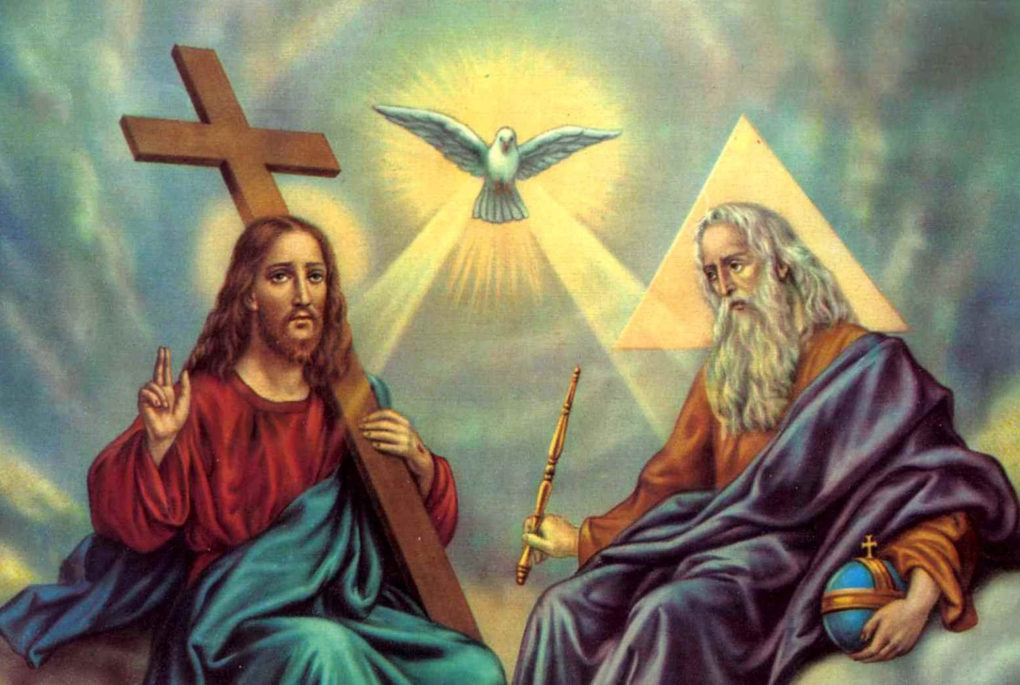The Most Holy Trinity is the cornerstone of the Christian faith, a profound mystery that Jesus Himself highlighted in the Gospels. In Matthew 28:19, He commands, “Go, therefore, and make disciples of all nations, baptizing them in the name of the Father, and of the Son, and of the Holy Spirit.” This triune nature of God – Father, Son, and Holy Spirit – transcends human understanding, yet it is central to our faith. Theologians have long debated and defined the Trinity in philosophical terms.
A pastoral approach, however, enables us to experience the Trinity in our everyday lives. This is the approach I’m taking in this blog.
God the Father: The first person of the Trinity, is the Creator of all that exists. He is the source of life and is the Father who cares for all His creation and children on earth. To truly honor God the Father, we must embrace all His children with love and respect, recognizing the inherent dignity of every individual. This call to universal acceptance of everyone is at the heart of the Church’s ecumenical efforts, encouraging unity among all Christians, even extending beyond to all humanity. Moreover, our respect for the environment reflects our reverence for God’s creation. As stewards of the Earth, we are called to protect and preserve the natural world, recognizing it as a gift from God the Father.
God the Son: Jesus Christ, the second person of the Trinity, is the model of human perfection. In His incarnation (becoming flesh), He became the perfect model for how we are to live our lives. His life, teachings, death, and resurrection reveal the depth of God’s love for us and provide a blueprint for our own journey towards holiness. His new commandment, “love one another as I have loved you” (John 13:34) is the essence of the Christian life. By following Jesus’ example of compassion, humility, and self-sacrifice, we draw closer to God and become witnesses of His love in the world.
God the Holy Spirit: The Holy Spirit, the third person of the Trinity, is the enlightening, dynamic and active presence of God in the world. Described as the “spirit of truth” (John 16:13), the Holy Spirit enlightens our minds and hearts, guiding us to a deeper understanding of God’s word and His will for our lives. The Spirit’s presence is often felt in moments of inspiration, peace, and clarity, helping us discern God’s path for us. The Holy Spirit also empowers us to live out our faith boldly, providing the gifts and fruits necessary for our spiritual growth and the building up of the Community.
While the doctrine of the Trinity may seem abstract, its impact on our daily lives is profound and tangible. The Father’s creative love for everyone and everything, the Son’s redeeming sacrifice, and the Spirit’s guiding presence are the foundations upon which we build our spiritual lives. By focusing on this pastoral aspect of the Trinity, we are invited to experience God’s triune nature in a way that transforms our hearts and lives.
Thus, the mystery of the Trinity is not merely a theological concept, but a divine reality to be lived. As we appreciate the Father’s boundless love, the Son’s perfect example, and the Spirit’s constant guidance, we find ourselves drawn into a deeper relationship with God. Let us embrace this mystery with faith and openness, allowing the Trinity to shape our journey and illuminate our lives.
—Fr. Hugh Duffy, Ph.D.








3 Comments
Tom Walsh
Thank you Fr. Hugh for this very much appreciated explanation of the Holy Trinity. It is indeed a mystery for me, but your explanation has helped me and I am sure many others to get a handle on the Holy Trinity and to embrace all the Love, Guidance and Protection it brings to all who believe in the Holy Trinity. Amen 🙏. Tom
Tom Rooney
Thank you Father ,great food for thought and meditation
Bartholomew Okere
Fr.Duffy, the Holy Trinity among many Christians has remained a mystery beyond our comprehension.That three Gods are one in substance, with equal power, honor and respect makes it a divine mystery to embrace.Three divine persons in one that mesmerized St. Augustine who said that the theory & concept of the Most Holy Trinity is beyond our grasp. Thanx for your exegesis on the mystery of the Trinity
YOU MIGHT ALSO LIKE
God’s Will
‘To be in the world, but not of it.’
The Vine and the Branches